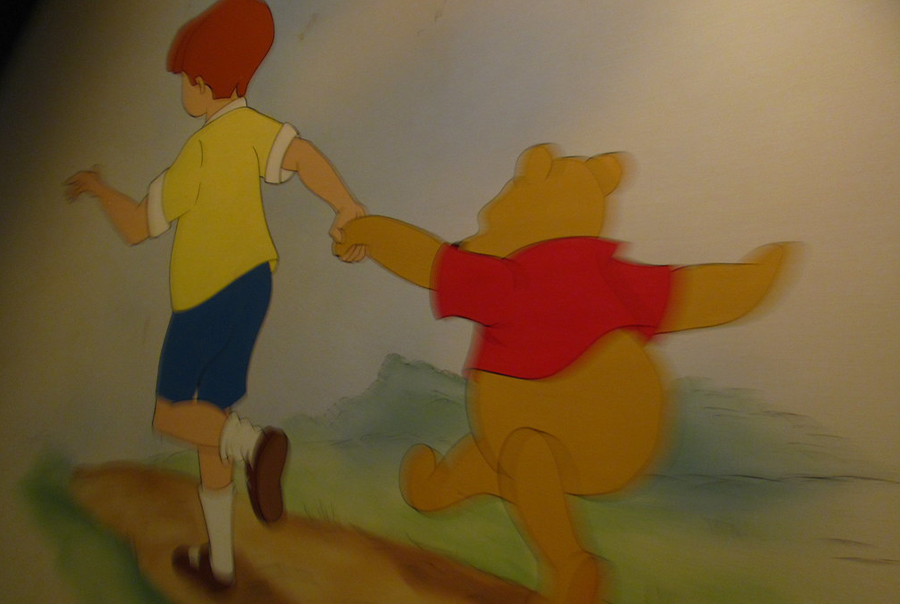

Credit: Flickr
Talkback Radio And Empty Shells
22nd May 2025
Last week, at the Voyager Awards, some brilliant journalism was celebrated. An interview on talkback radio this week was a reminder that some discourse sits outside the canon of great, insightful work.
By Sarah Daniell
Sometimes it’s best not to look. Or listen. Not if you want to keep your sanity. Sometimes it’s hard but also important to look. And to listen. People who say ‘I never read/watch/participate in the news or current affairs’, or ‘I never read mainstream media’ are sometimes, often, missing out on a rich vein of information and commentary about their world and the people in it. Sometimes you crash into dross or clickbait, like a recent headline: why it’s important not to keep your peanut butter in a pantry.
But to find the pearl takes grit and time and this is true too for the media. Sometimes you just get shells with nothing in them.
There are extraordinary people working in big organisations and there are equally incredible people grafting away quietly and diligently in smaller places, telling stories that are important and that give voices to the unheard.
At the Voyager Media Awards last week it was gratifying to see the number of Pasifika and Māori journalists who are actually killing it. Indira Stewart won the best current affairs shortform digital award for her remarkable work on Children of Prisoners on RNZ. It’s devastating, exceptional storytelling about connection.
No one from NZME, or the organisers, mentioned Pauline Hanna’s name in accepting an award for its Polkinghorne coverage. Entitlement has a long tail. [https://northandsouth.co.nz/2025/04/16/polkinghorne/].
NZME also won for its excellent Whenua project and the judges said: “Whenua: Our Land, Our History is bold storytelling that confronts the past while innovatively engaging the present – truly ‘walking backwards into the future’.
Walking backwards into the past, however, seems the course of choice for the coalition Government, characterised by a rudderless leader desperately in search of a conviction. Anything. One minute, he’s saying the Treaty Principles Bill was not helpful and he wouldn’t support it, and next, he’s on the radio getting fired up about Stop/Go signs in te reo Māori. Te reo Māori is our native language and a taonga. It is an official language of Aotearoa but never mind. It’s hard to get the memo when so many of your public servants have lost their jobs and left town.
The PM and his coalition partners in the danse macabre seem to make a virtue of meaningless sloganeering and anti-intellectualism. Winston Peters was ejected from the House this week for a disgraceful and childish question in the debate over Te Pāti Māori’s punishment. The coalition is adrift on a sea of entitlement, racism, misogyny. For further reference, see National rushing through the Pay Equity Bill in urgency.
The 50s, 60s and 70s are back and they’re on a party line to talkback radio.
Case in point: an interview this week with a well known broadcaster (who, in homage to AA Milne, we’ll call Whiny the Pooh) was interviewing the Prime Minister (who we’ll call Christopher). The subject: the “Maowryfication” of Aotearoa – or more specifically, Stop/Go signs in te reo Māori. Oh the horror, said the 50s, 60s and 70s on the incoming line. Imagine being confronted by that – you’d surely drive off a cliff in utter confusion.
Christopher: I’m not the person I used to be.
Whiny the Pooh: You saved us. You’re a hero.
Christopher: I’m not a hero, Pooh. The fact is, I’m lost.
Whiny the Pooh: But I found you.
The discourse, if it’s possible to elevate it by that descriptor, went like this:
“How is it still happening?” said Whiny the Pooh. “How can somebody somewhere say ‘I want a Mowry road sign? ‘They’re taking the piss aren’t they?”
Christopher: “We had a situation with te reo Stop/Go signs and where we see it, we say that’s not appropriate. We need road signs to be unambiguous.”
A situation? WTF does that even mean? What does any of this mean? I do know we need unambiguous leadership though. Its opposite, ambiguous, is a fair definition of Christopher’s turn at the helm. “Worrying, unfocused, paralysed”, according to one dictionary, and the outcome of ambiguity: “instils a sense of discomfort and danger that further alters the perception of that person and/or situation. This is not healthy.”
It’s not healthy, Christopher.
The trouble with Christopher is that as a former CEO of Air New Zealand and now New Zealand (as he relentlessly reminds us) he allegedly embraced the koru on the carrier’s planes. But Stop/Go signs are the highwater mark of ‘offensive’ and Christopher is digging in. Trouble is, that’s sand, Christopher.
Sometimes you just get shells with nothing in them.
But the real trouble with Christopher is he (also relentlessly) switches viewpoints, depending on the prevailing wind. How can you steer a course without an abiding philosophy? No one will believe you on anything. There’s ‘centrist’, Christopher, and there’s all at sea.
Human beings often behave badly when responding to fear. What are they afraid of? Answer: the sharing of power – whether it be with women, Māori or anyone they regard as a legitimate or even imagined threat to their own power.
Te reo Māori is an official language of our country. Fact. Two entitled white men furiously agreeing with each other does not make that untrue.
But unfortunately as they’re walking backwards to the past, they’re also holding the mic:
Whiny the Pooh: It’s always a sunny day, when Christopher comes to play.
And off they went to enjoy a picnic lunch of marmite sandwiches.
